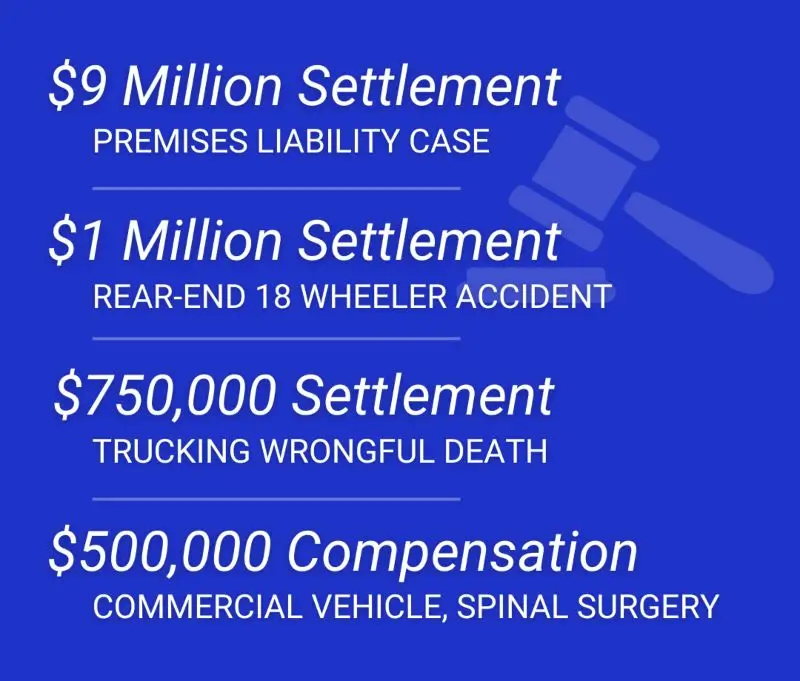What You Need to Know About Sexual Assault Cases
Sexual assault is a deeply traumatic experience that often leaves survivors feeling overwhelmed and uncertain about what steps to take next. First and foremost, remember you are not alone. Nava Law Group, P.C. is proud to be part of the support system for so many sexual assault victims in Houston, TX. When you work with us, we’ll help you understand the intricacies of the legal system and guide you as you take steps toward justice. Here’s what you need to know about filing a claim and building a sexual assault case.

Defining Sexual Assault
Sexual assault encompasses a wide range of non-consensual sexual activities. It can include rape, molestation, forced oral sex, and other forms of unwanted sexual contact. Understanding the broad scope of sexual assault makes it easier to recognize and acknowledge the severity of the offense.
Sexual assault can happen to anyone, regardless of gender, age, or background. It is a violation of personal boundaries and autonomy, leaving lasting emotional and psychological scars. Moreover, sexual assault is never the survivor’s fault. The responsibility lies solely with the perpetrator. Asking for help after the incident is a sign of strength, never weakness.
The Immediate Steps to Take After an Assault
In the moments and days after a sexual assault, your safety and well-being should be a top priority. Reach out to someone you trust for support and seek medical care right away. In addition to helping you heal, seeing a doctor allows them to document injuries and evidence of sexual assault. Many hospitals have Sexual Assault Nurse Examiners (SANEs) who are specially trained to handle these cases with sensitivity and expertise.
If it is safe to do, you should also take the following measures to preserve evidence:
- Keep the clothes you were wearing in a paper bag.
- Avoid showering or bathing until after receiving medical care.
- Never clean the crime scene before law enforcement has had a chance to scan for evidence.
How to Report Sexual Assault
Too often, survivors do not report their assaults. Though the process may seem daunting, filing a report is an essential step toward justice and preventing further harm. You can report the incident to any of the following individuals:
Law Enforcement
When reporting to the police, you will be asked to provide a detailed account of the incident. This may feel overwhelming, but remember that you have the right to have a support person with you during this process. If you don’t feel comfortable bringing a friend or family member, request a Sexual Assault Advocate to sit with you during interactions with the police. These advocates, as well as all law enforcement officers, are trained to handle these cases with sensitivity and confidentiality.
School or Workplace Officials
Many organizations and workplaces have protocols for reporting sexual assault. Designated individuals or departments are often responsible for handling these reports. For example, Title IX coordinators or human resources can assist in navigating these procedures.
Anonymous Reporting
Some areas in Texas offer anonymous reporting options, allowing survivors to report the assault without revealing their identity. This can be used for statistical purposes and tracking potential patterns by law enforcement but does not allow you to pursue a case. Instead of anonymous reporting, our sexual assault lawyers strongly encourage speaking with law enforcement or a mandated reporter.
Know the Legal Rights of Survivors
Understanding your legal rights as a survivor is crucial for navigating the legal system effectively. You have the right to report the assault and seek legal action without fear of retaliation or discrimination. Additionally, you have the right to access support services to aid in your recovery. Many jurisdictions have laws in place to protect survivors’ rights, such as the right to a victim advocate, the right to be informed about the progress of your case, and the right to privacy. Familiarizing yourself with these rights can help you make informed decisions and assert your needs throughout the legal process.
Crucially, you should be aware of any statutes of limitations that apply to your case. Statutes of limitations dictate the time frame within which legal action must be initiated. Consulting with a personal injury attorney can help you understand your options.
Accessing Additional Support Services
Navigating the aftermath of a sexual assault can be overwhelming, and support services are often essential for the healing process. Organizations such as the Rape, Abuse & Incest National Network (RAINN) provide 24/7 hotlines and online chat services where you can speak with trained professionals and learn more about local resources.
Beyond national services, you may also benefit from support groups and counseling services. Connecting with others who have experienced similar trauma can provide a sense of community and understanding. Many organizations offer both individual and group counseling sessions to cater to your specific needs.
Begin the Legal Process With a Sexual Assault Lawyer
The legal process for sexual assault cases is complex and lengthy. However, you shouldn’t let that deter you from seeking justice. After meeting with our sexual assault victim lawyers, you’ll have a better grasp on how to navigate the legal process. Generally speaking, here’s what to expect after reporting the incident:
Investigation
Once an assault is reported, law enforcement will begin their investigation, gathering evidence such as witness statements, digital communications, and forensic reports. The investigator’s goal is to compile a comprehensive case file to support prosecution. During this phase, survivors are encouraged to share any additional information that may strengthen the case. Examples of evidence include, but are not limited to:
- DNA samples
- Clothing
- Photos of injuries
- Text messages
- Social media interactions between the perpetrator and victim
Grand Jury Review
Before proceeding to trial, sexual assault cases in Texas are often reviewed by a grand jury. The grand jury evaluates whether there is sufficient evidence to formally charge someone with a crime. Neither the survivor nor the defendant typically appears during these proceedings.
Pre-Trial Actions
Pre-trial hearings address various legal motions, establish bail conditions, and set timelines for evidence exchanges. During this period, both parties prepare for trial by gathering witnesses and finalizing legal strategies.
Trial and Prosecution
In Texas, the trial process involves several key stages, including jury selection, opening statements, witness testimonies, and closing arguments. The prosecutor bears the burden of proving the defendant’s guilt beyond a reasonable doubt. The survivor may be called to testify and provide a firsthand account of the assault.
At Nava Law Group, P.C., we understand that the prospect of facing the perpetrator in court is daunting for many survivors. However, understanding the courtroom process and being prepared can help you feel more confident and empowered. Your attorney will guide you through the process and help you prepare for cross-examination if necessary.
Verdict and Sentencing
Following the trial, the jury deliberates and renders a verdict. If the defendant is found guilty, a sentencing hearing comes next. During sentencing, the survivor may have an opportunity to present a victim impact statement detailing the assault’s effects on their life.

Types of Compensation You Can Receive in Sexual Assault Cases
For many sexual assault survivors, going to court is all about getting justice. However, in some cases, you may be eligible for various forms of compensation as well. While we cannot guarantee any specific amount, the following types of compensation may be available to you:
- Medical Expenses—Compensation can cover the costs of medical treatment related to the assault, including emergency care, surgeries, hospital stays, ongoing medical consultations, and medications. This support ensures that survivors receive the proper care without the added stress of medical bills.
- Therapy and Counseling—Sexual assault often has profound and long-lasting impacts. Some types of compensation include coverage for mental health services such as therapy and counseling. This access to professional psychological support can significantly help with emotional healing.
- Lost Wages—If you are unable to work or require extended leave as you recover from the incident, compensation may cover lost income. This type of support is instrumental in relieving financial strain as you focus on healing.
- Legal Fees—Are you concerned about legal fees? Some compensation programs offer support to cover attorney fees, filing costs, and other legal expenses to ensure survivors are able to seek justice despite financial issues.
- Crime Victims’ Compensation Programs—Programs such as the Texas Crime Victims’ Compensation Program offer financial assistance for victims and cover costs related to a crime. We can determine whether you’re eligible for these programs.
After the Trial: What Next?
Once your civil lawsuit has ended and you’ve received compensation, it can be difficult to know how to proceed. At the end of the day, your top priority should be your continued healing and well-being. The legal process is emotionally and physically draining, and we encourage taking time for self-care and recovery. Try the following avenues for navigating life after the trial:
- Growing Support Networks— Connect with trusted friends and family to share your experiences and receive emotional support. Beyond that, there are several support groups in and around Houston for sexual assault survivors. These resources offer valuable information, referrals, and opportunities to speak with others who have experienced similar trauma.
- Seeking Professional Therapy— Consider enlisting the help of a mental health professional who specializes in trauma. Therapies such as Cognitive Behavioral Therapy (CBT) or Eye Movement Desensitization and Reprocessing (EMDR) can be particularly beneficial in processing and overcoming trauma. Remember, you may not mesh with the first therapist you meet with. Be open to exploring your options!
- Practicing Self Care—Many survivors report feelings of shame, guilt, anger, and depression following an assault. In addition to seeking help from a licensed therapist, we also encourage practicing self-care. Engage in activities that bring you joy and help you relax. Something as simple as taking a walk or meditating can make a big difference in your mental well-being.
Resources for Further Help
Survivors of sexual assault often need a large support network as they work toward recovery. While legal professionals and therapists are a critical part of the equation, they aren’t the only way to find support. If you need further help as you heal from the assault, consider reaching out to these organizations:
- Rape, Abuse & Incest National Network (RAINN)—Offers a 24/7 hotline and online chat service for confidential support.
- National Sexual Assault Hotline—Provides crisis intervention, information, and referrals to local resources.
- Local Crisis Centers—Often provide counseling, support groups, and advocacy services. Nava Law Group, P.C. can recommend reputable organizations in the Houston area.
Why Meet With a Personal Injury Lawyer?
At Nava Law Group, P.C., we know filing a civil lawsuit can be emotional and bring up past traumas. However, seeking justice is often a pivotal step toward healing. Enlisting the expertise of a lawyer when pursuing a sexual assault case can significantly impact the outcome and provide invaluable support along the way. A seasonal personal injury lawyer can:
- Protect your rights throughout the trial.
- Gather and present evidence effectively.
- Negotiate settlements according to your best interests.
- Offer guidance on your legal options.
- Provide a sense of reassurance during the process.
- Allow you to focus on your recovery rather than legal issues.
Consult With Our Experienced Team Today
If you or a loved one have been affected by a sexual assault, don’t hesitate to seek justice. At Nava Law Group, P.C., we’re proud to have helped so many survivors in Houston and the surrounding communities. We’ll be at your side, available to answer questions and provide needed support along the way. You are not alone, and our personal injury lawyers can help you gain compensation for your recovery efforts. Contact us today to schedule a consultation.








